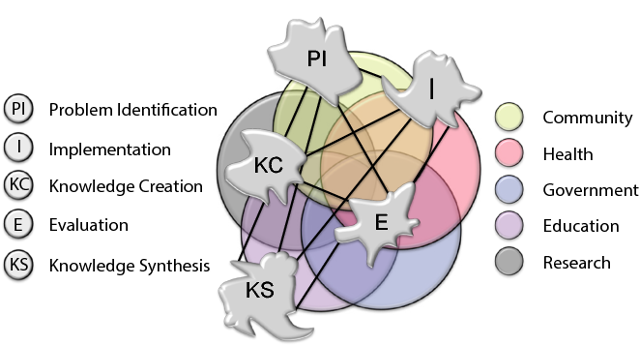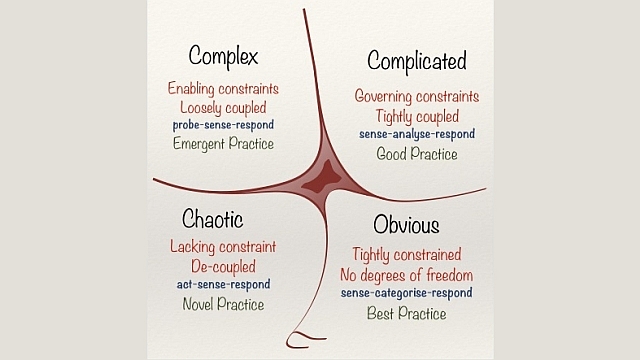
Taking responsibility for complexity (section 4): Conclusion
This article is part of a series of articles featuring the ODI Working Paper Taking responsibility for complexity: How implementation can achieve results in the face of complex problems.
As this [series] … is intended as a practical guide, the conclusions are not its most important aspect. Nevertheless, below are offered some thoughts and questions as to what the principles and priorities for tackling complexity might mean for governance and public administration generally, and for development agencies specifically. It is worth noting again that what is presented above is still a work in progress. We offer a way of naming and identifying the problem of complexity, but further research is needed to identify which problems should be treated as complex as well as the relevant balance of ‘complex’ and traditional tools in different areas. Building comparable frameworks for studying complex systems (e.g. Ostrom, 20091) is also important. Moreover, complexity does not offer all the answers: there are many ‘unknowns’ and important questions as yet unanswered (more on this … [in the following parts]). One important gap lies in testing solid accountability mechanisms for networked governance.
However, complexity does offer a way of participating in ongoing thinking and ideas, with a variety of individuals and organisations worldwide putting considerable effort into developing and testing practical tools. There are also a number of efforts to bring together such efforts, such as the New Synthesis Project (see Box 2), which is hoping to develop workable new models for government in the face of complexity. This offers a wide variety of opportunities for engaging in and contributing to ongoing dialogue and learning in an important area.
The subsections in this section (section 4) are:
4.1 – What are the implications for governance and public administration?
4.2 – Implications for aid agencies.
Next part (section 4.1): What are the implications for governance and public administration?
See also these related series:
- Exploring the science of complexity
- Planning and strategy development in the face of complexity
- Managing in the face of complexity.
Article source: Jones, H. (2011). Taking responsibility for complexity: How implementation can achieve results in the face of complex problems. Overseas Development Institute (ODI) Working Paper 330. London: ODI. (https://www.odi.org/sites/odi.org.uk/files/odi-assets/publications-opinion-files/6485.pdf). Republished under CC BY-NC-ND 4.0 in accordance with the Terms and conditions of the ODI website.
References and notes:
- Ostrom, E. (2009). ‘A General Framework for Analyzing Sustainability of Social-ecological Systems.’ Science 325(5939): 419-422. ↩





